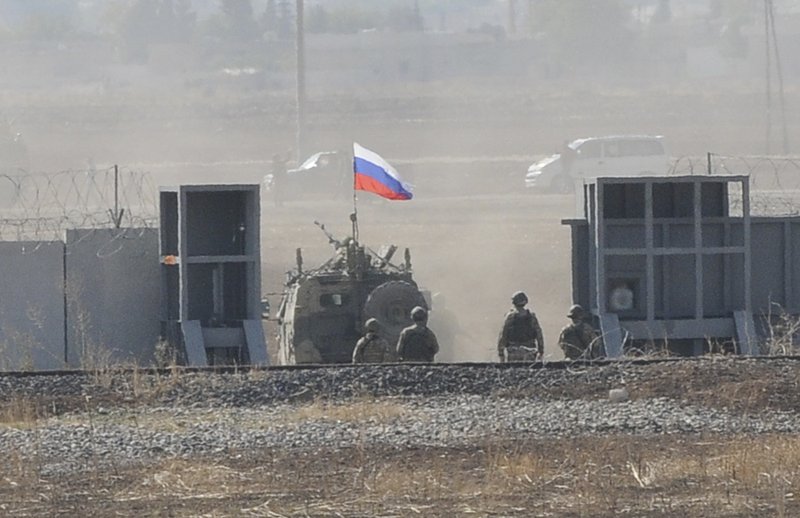Turkish President Recep Tayyip Erdogan called Tuesday for Russia and the United States to keep to their promises and ensure that Syrian Kurdish fighters pull out of a so-called safe zone along Syria’s northern border with Turkey.

In his weekly speech to ruling party legislators, Erdogan said Syrian Kurdish fighters were still present in some of the border areas in northeastern Syria. That’s despite two cease-fire agreements _ brokered by the U.S. and Russia _ that halted Turkey’s military offensive to allow Kurdish fighters to pull back from the border.
Turkey considers these Kurdish-led forces to be terrorists, but the same fighters had also made up the core of the U.S.-backed force that battled the Islamic State group.
“We know that terrorists are present within the limits of the safe zone we have designated with both sides,” Erdogan said. “They cannot deceive us by saying ‘we have taken the terrorists out of these places, we have cleared them of terrorists.”’
He said the Kurdish fighters were still present in the Tal Rafat and Manbij regions as well as an area east of the town of Ras al-Ayn. Turkey’s agreements with Moscow and Washington allowed for the Kurdish fighters to withdraw 30 kilometres (19 miles) away from the border.

Get daily National news
Erdogan also said Turkish troops were being attacked by some Syrian Kurdish fighters from areas they had retreated to, adding that Turkey would not “remain a spectator” to these assaults.
“We will do what is necessary, as we have in the past,” Erdogan said, without elaborating.

Erdogan later told reporters that U.S. troops were conducting joint patrols with the Syrian Kurdish fighters, despite the agreement with Turkey.
Separately, Turkey’s defence ministry said Kurdish fighters allegedly detonated a car bomb in Tal Abyad on Tuesday, and that no one was hurt in the attack. The ministry said the perpetrator was caught but provided no further details.
Turkey considers the Kurdish fighters to be terrorists because of their links to Kurdish militants fighting inside Turkey.
Turkey has used Syrian opposition fighters, which include former jihadists, as shock troops for much of the fighting. Many of those Turkey-backed forces are made up of Arab and Turkmen fighters from northern and eastern Syria who have an axe to grind against the Kurds and a reputation for violence and looting. There have been concerns in Christian villages about possible atrocities by these Turkey-backed fighters
READ MORE: Canada and the West must bring back their ISIS detainees, Kurdish representative says
Around 200,000 people have been displaced since Turkey began its offensive on Oct. 9.
Erdogan spoke as Turkish and Russian troops carried out their second joint patrol in northeast Syria under the deal reached with Moscow. Turkey’s military said Turkish and Russian troops, backed by drones, were roaming the Ayn al-Arab region, east of the Euphrates river, which is also known as Kobane. An Associated Press journalist said four Turkish and four Russian armoured vehicles took part in the joint patrols.
Turkey and Russia agreed last month to hold joint patrols at a depth of 10 kilometres (6 miles) from the border in the west and east of areas held by Turkish troops and allied Syrian opposition fighters during its military incursion.
U.S. forces had withdrawn from Syrian border areas in October, allowing the Turkish offensive. The Kurds have since turned to Russia and the Syrian government in Damascus for protection.







Comments